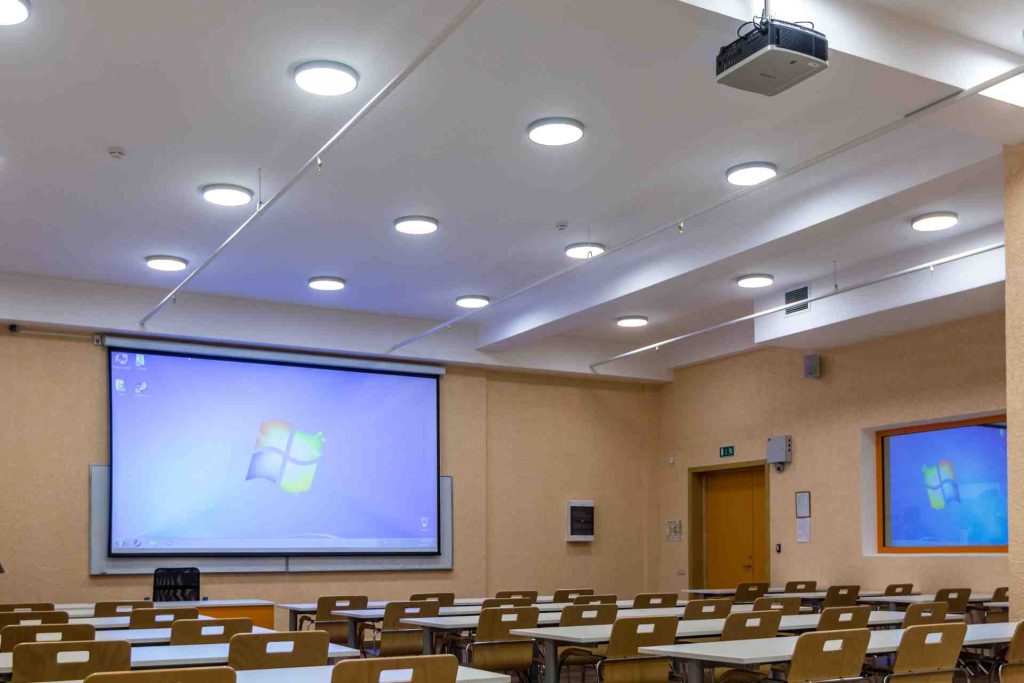What kinds of skills—academic or otherwise—do students seem to develop through using games like Minecraft in the classroom?
“Building structures or environments encourages artistic and architectural thinking. Multiplayer mode fosters communication and teamwork. Completing challenges or building complex redstone machines requires planning, iterative testing, navigating a virtual environment, managing resources, and building tech fluency.
Despite these benefits, I find the disadvantages far outweigh the benefits. Cheating and distraction are absolutely a challenge. It’s not worth the hassle of keeping 30+ kids on task, especially because half of them will complain it’s boring and won’t do it anyway. It requires strong scaffolding, clear rules, and active teacher supervision, which teachers aren’t given time for. Minecraft can’t replace solid pedagogy, but it can supplement it when goals are clear.”
Do you find that certain students who struggle in traditional classroom settings thrive more with these tools?
“Yes, and no. Learners who face social anxiety can feel confident in demonstrating their knowledge without facing the pressures of their peers. It also provides learners with more enjoyment in the classroom, and some would argue that learners who are having fun tend to learn more. But that won’t always be the case. I think teaching has become a profession of ‘how do we make this fun?’ I’m all for fun and interesting, but it also needs to be relevant. The learning objectives must be clear. Gamification gives learners all the fun, without any way of knowing if key learning is actually being recognised or remembered. Mostly, it appeals to ‘gamer’ kids. They have impressive knowledge, but the majority of the time, they’re gaming during class time anyway (don’t get me started on trying to take laptops off kids – it’s never worth the parent emails). Learners with dyslexia do thrive in these kinds of lessons, so I totally recommend it for them.
It also relies on every learner having access to laptops and gaming servers, which many do not have. This gross assumption will lead many to feel excluded from work, as they do not have the personal resources to use Minecraft in class or at home, even for educational purposes.”
How do teachers balance screen time with traditional learning methods?
“Most teachers actually hate using laptops. It is so easy for learners to be distracted, and honestly, who can blame them. The entire world is literally right in front of them. It’s nice to ask for laptops closed while you talk with them about important content, but the rise in behavioural issues due to laptop use is astonishing. From my classes, I’ve found learners who hand-write work, or verbally communicate their knowledge, have far better content knowledge than learners who use their laptops for everything.
We are also seeing a loss in critical thinking and problem solving. Instead of trying to work out the answers and acknowledging failures and learning, kids will just google the answer. It’s making children lazy, and it’s so difficult to monitor more than thirty laptops at a time. Not using laptops may seem ‘old-fashioned’, but it works for a reason. I’m a young teacher, who’s in their twenties and I would rather see my students using paper and pens than laptops any day of the week.”
Where do you see the role of gamification heading in the future of education?
“Nowhere. I love gaming, and it’s a huge part of my free time. Sometimes, bringing things people love into the classroom can invigorate them and make them want to learn, or make them lose interest. It promotes fun and creativity, which I love. But we are losing our key skills and the
temptation of distraction will almost always win. However, gamification will likely evolve alongside advances in technology and pedagogy. Successful integration depends on thoughtful design that prioritizes learning outcomes, equity, and student engagement without sacrificing depth or critical thinking. The goal isn’t replacing traditional methods, because we know what works, but enhancing learning with purposeful, relevant, and well-structured experiences — something that requires ongoing research.”





